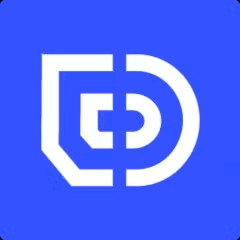Description

Dataloop

GlossAi
Comprehensive Overview: Dataloop vs GlossAi
As of my knowledge cutoff in October 2023, Dataloop and GlossAi are two distinct platforms catering to different aspects of data management and AI technologies. Here’s a comprehensive overview of each:
Dataloop
a) Primary Functions and Target Markets:
- Primary Functions: Dataloop is a data management and annotation platform primarily used in the field of computer vision. It facilitates the creation, management, and deployment of AI models by providing tools for data labeling, dataset management, pipeline automation, and quality assurance. Key features include interactive annotation tools, a data-management console, and collaboration capabilities for data scientists and development teams.
- Target Markets: The platform targets industries requiring large-scale image and video data processing, such as automotive (for autonomous vehicles), retail (for inventory and store analysis), agriculture (for crop monitoring), and healthcare (for medical imaging).
b) Market Share and User Base:
- Dataloop does not publicly disclose specific market share or user base statistics. However, as a platform specializing in data management for AI, it is considered a strong participant within the niche market of AI-driven data annotation and management tools. The market itself is competitive, with players like Labelbox, Scale AI, and Supervisely.
c) Key Differentiating Factors:
- User-Centric Features: Dataloop emphasizes ease of use with its interactive annotation tools and intuitive user interface.
- Collaboration and Automation: The platform provides collaborative tools for teams and automation features to streamline AI workflows.
- Comprehensive suite: Includes data curation from annotation to model deployment, which is advantageous for end-to-end AI project management.
GlossAi
a) Primary Functions and Target Markets:
- Primary Functions: GlossAi utilizes AI to enhance content creation and management processes. It offers tools for automatic video content creation, editing, and enhancement, allowing users to generate engaging content more efficiently.
- Target Markets: GlossAi targets digital marketers, content creators, media companies, and enterprises seeking to leverage AI for scalable and swift content production and management.
b) Market Share and User Base:
- Like Dataloop, GlossAi has not disclosed detailed metrics related to market share or user base. Nonetheless, it is positioned within the emerging market of AI-driven content creation tools, competing with products such as Lumen5, Animoto, and Magisto.
c) Key Differentiating Factors:
- AI-Powered Video Editing: GlossAi stands out with its ability to automatically generate and edit video content using AI, which significantly cuts down the manual effort typically required in content production.
- Focus on Engagement: The platform is designed to help users produce content that increases engagement across digital channels through enhanced AI-generated features.
- Scalability: Supports the creation of large-scale video content without the equivalent increase in resources or time, which is particularly beneficial for enterprise-level needs.
Comparative Aspects
- Target Functionality: While Dataloop focuses on data management and annotation for AI model training, GlossAi centers on AI-enhanced content creation and management.
- Market Alignment: Both serve companies leveraging AI, but Dataloop caters more towards industries necessitating robust AI model training, while GlossAi appeals to content-focused enterprises and marketing departments.
- Technological Differentiation: Dataloop provides a comprehensive ecosystem for AI data workflow, enabling collaboration and automation. In contrast, GlossAi specializes in automating content creation, providing quick and scalable media solutions.
In summary, Dataloop and GlossAi target different facets of the AI domain, one leaning towards data management and AI model preparation, and the other focusing on content creation through AI technologies. Their differentiation lies in their functionality focus, with Dataloop facilitating AI model training and GlossAi enhancing digital content production.
Contact Info

Year founded :
Not Available
Not Available
Not Available
South Africa
http://www.linkedin.com/company/dataloopsa

Year founded :
2021
Not Available
Not Available
Israel
http://www.linkedin.com/company/glossai
Feature Similarity Breakdown: Dataloop, GlossAi
To compare Dataloop and GlossAi, let’s explore their core functionalities, user interfaces, and unique features. Both products cater to different technological needs but have some overlapping features.
a) Core Features in Common
-
AI and Machine Learning Capabilities:
- Both Dataloop and GlossAi leverage AI technology to optimize their respective services. While Dataloop focuses on data labeling and annotation for machine learning projects, GlossAi emphasizes content creation and enhancement using AI.
-
Collaboration Tools:
- Both platforms also offer collaborative tools that allow teams to work together efficiently, providing project management features that enable multiple users to contribute and manage workflows.
-
API Integration:
- They offer API support, allowing integration with third-party applications or existing workflows, which is critical for scaling and customizing projects as per client needs.
b) User Interface Comparisons
- Dataloop:
- Dataloop's user interface is designed for developers and data scientists, with tools that facilitate data annotation, model management, and quality assurance. Its dashboard focuses on data visualization and project status, providing a clean, professional environment tailored for technical users.
- GlossAi:
- GlossAi typically has a more user-friendly and intuitive interface that's designed for content creators and marketers. It emphasizes ease of use and typically requires less technical expertise, featuring drag-and-drop functionalities, simple editing tools, and a clear layout that guides users through creating and enhancing content.
c) Unique Features
-
Dataloop:
- Advanced Data Annotation Tools: Dataloop provides sophisticated features for labeling and managing large datasets, including advanced data types (images, video, audio), automation tools for repetitive tasks, and quality management systems to ensure data integrity.
- Data Pipeline Management: It offers robust tools for managing and organizing data pipelines, which is particularly beneficial for enterprises dealing with significant amounts of data.
-
GlossAi:
- Automated Video Creation and Enhancement: GlossAi specializes in transforming text into high-quality video content and enhancing existing videos with AI-generated elements like subtitles, voiceovers, and appealing visuals.
- Content Optimization for Engagement: It includes features that analyze and improve the emotional impact and engagement potential of content, providing recommendations powered by AI to ensure content resonates with audiences.
In summary, while both Dataloop and GlossAi integrate AI into their services, they serve different industries with unique focal points; data management for Dataloop, and content creation for GlossAi. Their user interfaces reflect their target audiences, and each platform offers distinctive tools that capitalize on their individual strengths.
Features

Data Annotation
Project Management
Integration Capabilities
Quality Assurance
User Collaboration

Content Creation & Editing
Collaboration & Sharing
Analytics & Insights
Best Fit Use Cases: Dataloop, GlossAi
Dataloop and GlossAi are both powerful tools, but they cater to different needs and have distinct use cases. Here’s how they fit into various business scenarios and industry verticals:
Dataloop
a) Best Fit Use Cases for Businesses or Projects:
-
Data Annotation and Labeling: Dataloop is highly effective for businesses that require large-scale data annotation and labeling, particularly for projects involving computer vision, machine learning, and artificial intelligence. This includes industries like autonomous vehicles, drones, and surveillance cameras, where precise data labeling is critical for model training.
-
AI Model Training: Ideal for companies focused on developing and refining AI models, especially those dealing with complex datasets that require advanced annotation tools and workflows. It's a suitable choice for any organization needing to train AI algorithms on large volumes of structured or unstructured data.
-
Retail and E-commerce: Businesses in these sectors can leverage Dataloop to process and analyze visual data for inventory management, automated checkouts, and improving customer experiences through image recognition technologies.
-
Agriculture and Environmental Monitoring: Use cases include monitoring crop health, analyzing satellite imagery, and automating environmental data collection and analysis.
d) Industry Verticals and Company Sizes:
-
Industry Verticals: Technology, automotive, retail, agriculture, and healthcare are among the primary sectors where Dataloop can be transformative.
-
Company Sizes: Dataloop is adaptable to both startups and large enterprises, but it is particularly useful for medium to large companies with significant data processing and annotation needs essential for AI development at scale.
GlossAi
b) Preferred Scenarios for Use:
-
Content Creation and Enhancement: GlossAi excels in scenarios where businesses need to generate or enhance multimedia content. This includes automated video creation, editing, summarizing, and enriching media with AI-driven automation.
-
Marketing and Social Media: Companies focusing on digital marketing and social media can benefit from using GlossAi to quickly create engaging, high-quality content tailored to various platforms without extensive manual intervention.
-
E-Learning and Corporate Training: Organizations offering online education or employee training programs can use GlossAi to streamline the creation of learning materials and videos, making content more interactive and digestible.
-
Event Recording and Broadcasting: Ideal for companies that need to capture and enhance events, webinars, and conferences, transforming them into polished, professional-looking content.
d) Industry Verticals and Company Sizes:
-
Industry Verticals: Media and entertainment, education, marketing, corporate communications, and event management are well-suited for GlossAi’s capabilities.
-
Company Sizes: GlossAi is beneficial for small to medium businesses seeking cost-effective, automated content creation solutions. However, large enterprises with dedicated content teams can also leverage it for increased productivity and content scalability.
In summary, Dataloop is best suited for AI-driven projects requiring vast data annotation and processing capabilities, catering primarily to industries like technology and automotive. On the other hand, GlossAi is ideal for content-centric applications across media, marketing, and education sectors, benefiting businesses that prioritize automated, high-quality multimedia content production.
Pricing

Pricing Not Available

Pricing Not Available
Metrics History
Metrics History
Comparing teamSize across companies
Conclusion & Final Verdict: Dataloop vs GlossAi
To provide a conclusion and final verdict for Dataloop and GlossAi, we must assess both products based on various factors such as functionality, pricing, scalability, user experience, and support. Here’s a breakdown addressing your queries:
a) Best Overall Value
Dataloop:
Dataloop is known for its robust platform focused on data management and annotation, especially valuable for machine learning and computer vision tasks. Its extensive toolset for managing data pipelines and annotations, coupled with automation capabilities, caters to companies heavily reliant on data processing and AI model training.
GlossAi:
GlossAi specializes in AI-driven content generation, particularly for creating marketing materials, video content, and text-based outputs. It excels in enabling content creators and marketers to generate high-quality outputs efficiently, thereby enhancing creativity and productivity.
Conclusion:
The best overall value depends on the user’s primary needs. For data-centric businesses focusing on AI model training, particularly in vision-based applications, Dataloop offers more comprehensive capabilities. Conversely, for content creation and marketing where speed and creativity are key, GlossAi provides a better value.
b) Pros and Cons
Dataloop Pros:
- Comprehensive data annotation and management tools.
- Strong automation for data processing workflows.
- Scales well with large datasets, particularly in computer vision.
- Integrates with various MLops tools and platforms.
Dataloop Cons:
- Might be overkill for users not needing extensive data annotation.
- Learning curve involved for those new to data pipelines and management.
- Potentially higher costs for full-feature access compared to simpler tools.
GlossAi Pros:
- User-friendly interface tailored for non-technical users.
- Quick and efficient content generation, enhancing productivity.
- Adaptive AI tools that require minimal user intervention to produce high-quality content.
GlossAi Cons:
- Limited in capabilities for non-content related AI tasks.
- Heavily dependent on the quality of initial input/data for better output.
- May not integrate as deeply with technical platforms needed for ML model training.
c) Recommendations
-
For Users Focused on AI Model Training and Data Management:
- Opt for Dataloop if your primary need is to process, manage, and annotate datasets, especially if you're dealing with image or video data for computer vision tasks. Consider the long-term scalability and integration opportunities it offers with AI development workflows.
-
For Users in Content Creation and Marketing:
- GlossAi is suitable if your focus is on generating marketing materials and content quickly and at scale. It simplifies the process for non-technical users and is ideal for enhancing creative workflows.
-
General Recommendation:
- Evaluate the primary use case. If the emphasis is on AI model development and data-centric tasks, Dataloop offers more capability. For creative industries prioritizing content efficiency, GlossAi will be more beneficial. Budget, existing ecosystem compatibility, and the skill level of the user base should also influence the final decision.
Ultimately, understanding your organization's primary needs and the specific problems you aim to solve will guide you toward the right choice between Dataloop and GlossAi.
Add to compare
Add similar companies



